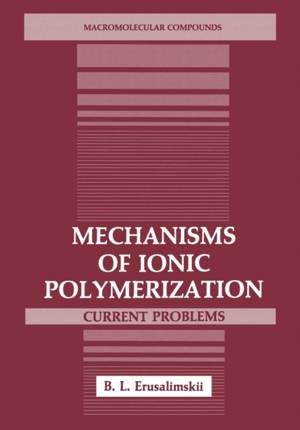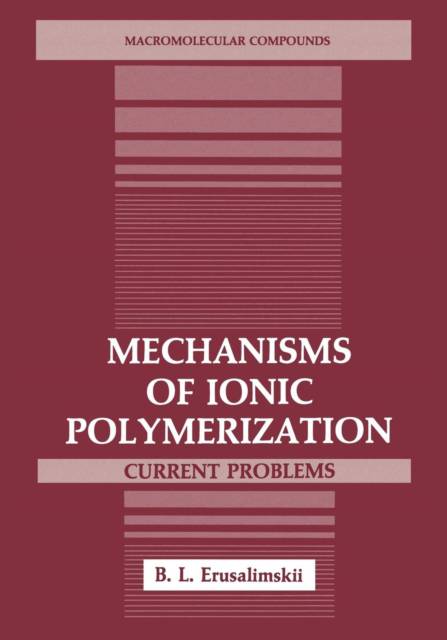
- Afhalen na 1 uur in een winkel met voorraad
- Gratis thuislevering in België vanaf € 30
- Ruim aanbod met 7 miljoen producten
- Afhalen na 1 uur in een winkel met voorraad
- Gratis thuislevering in België vanaf € 30
- Ruim aanbod met 7 miljoen producten
Zoeken
Omschrijving
In the last twenty years the literature on the processes of ionic polymerization has reached such a level that there is not a single question which is not covered by the information contained in the many monographs, reference books, and textbooks in this field. It is easy for the interested reader to find sources for in-depth study, for a superficial acquaintance with the fundamentals of the subject or with the general features of these processes. At the same time the field is being continually enriched by new facts which have not only broadened the data base but which influence existing concepts on the mechanisms of these reactions. Such influences often touch the very foundations of these concepts, i. e., they go beyond simple descriptions of the structure of the pre-reaction states or earlier schemes. It is therefore appropriate to attempt a critical appraisal of the modern views on the mechanisms of formation of macro- molecules in ionic systems which envisages, so far as is possible, the differentiating of fundamental and hypothetical conclusions or concepts. With this in mind we have preferred to address ourselves to the reader who is already quite well acquainted with the general litera- ture. This has allowed us to dispense with detailed introductions to the questions discussed and to limit ourselves to brief comments on the fundamentals of the subject.
Specificaties
Betrokkenen
- Auteur(s):
- Uitgeverij:
Inhoud
- Aantal bladzijden:
- 316
- Taal:
- Engels
- Reeks:
Eigenschappen
- Productcode (EAN):
- 9781468483949
- Verschijningsdatum:
- 25/04/2012
- Uitvoering:
- Paperback
- Formaat:
- Trade paperback (VS)
- Afmetingen:
- 178 mm x 254 mm
- Gewicht:
- 557 g

Alleen bij Standaard Boekhandel
+ 223 punten op je klantenkaart van Standaard Boekhandel
Beoordelingen
We publiceren alleen reviews die voldoen aan de voorwaarden voor reviews. Bekijk onze voorwaarden voor reviews.








